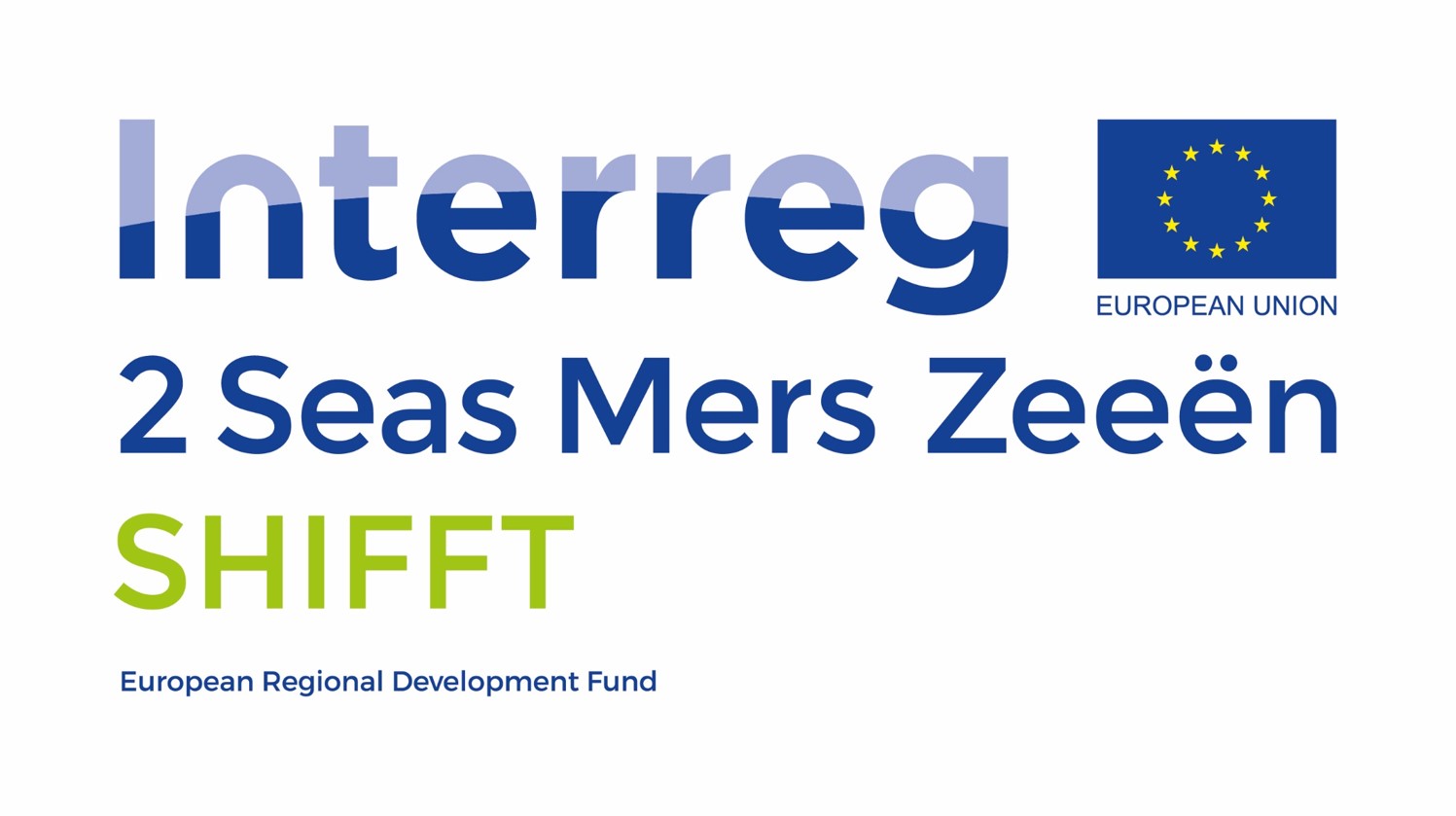SHIFFT
SHIFFT is an Interreg 2 Seas project, running from 2019-2022, promoting cross-border cooperation between 4 European countries: The Netherlands, France, Belgium and The United Kingdom. It has been approved under the priority ‘Low Carbon Technologies’.
Space and water heating represent a large fraction of overall energy consumption across the EU Member States, and around one third of carbon emissions. Dependence on fossil fuels has made the heat sector hard to decarbonise in at least three of the four Member States in the 2 Seas region. Further, between 65% and 80% of buildings across these four Member States that will exist in 2050 have already been built, often with fossil fuel heating systems and poor energy efficiency. There is an enormous potential to reduce CO2 emissions in the sector by shifting to low carbon heating alternatives, but there remain many barriers to doing so.
The main objective of the SHIFFT project is to stimulate the adoption of low-carbon heating technologies in existing buildings. It will take multiple routes to achieving this through its three technical work packages.
Work Package 1 devises city strategies for four small to medium municipalities as well as producing general guidance for cities to make their own strategies for the move to low carbon heating. City strategies will be devised for the Belgian cities of Brugge and Mechelen, the Dutch city of Middelburg and the French city of Fourmies, each led by the cities as full partners in the project. These will inform a document offering guidance to other cities who want to devise their own strategy. TU Delft is involved in Work Package 1 (both the faculties BK and TBM contribute to it).
Work Package 2 focuses on developing strategies for the fullest possible inclusion of communities in co-developing and co-creating low carbon heating strategies at the local level. This will inform the other Work Packages of SHIFFT. We see it as essential to include communities to the fullest possible extent in decisions about the buildings in which they live, work and play. TU Delft is lead partners of Work Package 2 (Faculty of TPM). TU Delft will use Participative Value Evaluation and several co-creation research methods in this Work Package.
Work Package 3 concerns delivery of exemplar community low carbon heating projects; one installation of low carbon heating technology will take place in each of the four INTERREG 2 Seas Member States, with each build led by one of our project partners: Places for People (UK), De Schakelaar (NL), Fourmies (FR) and Zorgbedrijf Rivierenland (BE). We will aim to capture learning from these developments and pass it on to the widest possible selection of stakeholders in the sector. TU Delft is involved in Work Package 3 to design, monitor and assess technical performance of heating technologies implemented in the investment pilots.
The work is led by the University of Exeter (UK), acting as project coordinator. Another knowledge partner, CD2E, will support the local authorities and other partners as regards technology, policy and co-creation of projects with communities.
The specific and measurable objectives of SHIFFT are to assist in the development of city low carbon heating strategies, both within the project and by demonstrating routes to strategy development for other municipalities, to develop exemplar low carbon retrofit heating projects and to work with others to pass on the lesson learned within the project to maximise the value of the lessons learned.
SHIFFT targets local and regional authorities as a primary target group with the purpose of influencing communities, homeowners, districts, cities, energy consultants, energy service companies and SMEs to consider a wider set of heating solutions than is currently the case.
For more information regarding the project please visit: https://shifftproject.eu/
Involvement of TU Delft researchers in SHIFFT:
Dr. Thomas Hoppe, project leader TU Delft, Work package 2 lead (TPM)
Ir. Tess Blom, Work Package 3 (BK)
Dr. ir. Michiel Fremouw, Work Package 3 (BK)
Dr. Anatol Itten, Work Package 2 (TPM)
Dr. ir. Sabine Jansen, Work Package 3 (BK)
Dr. mr. Niek Mouter, Work Package 2 (TPM)
The project is co-funded by the European Union. The total project budget is € 5.707.426. The total budget of Delft University of Technology within the project is € 480.672

